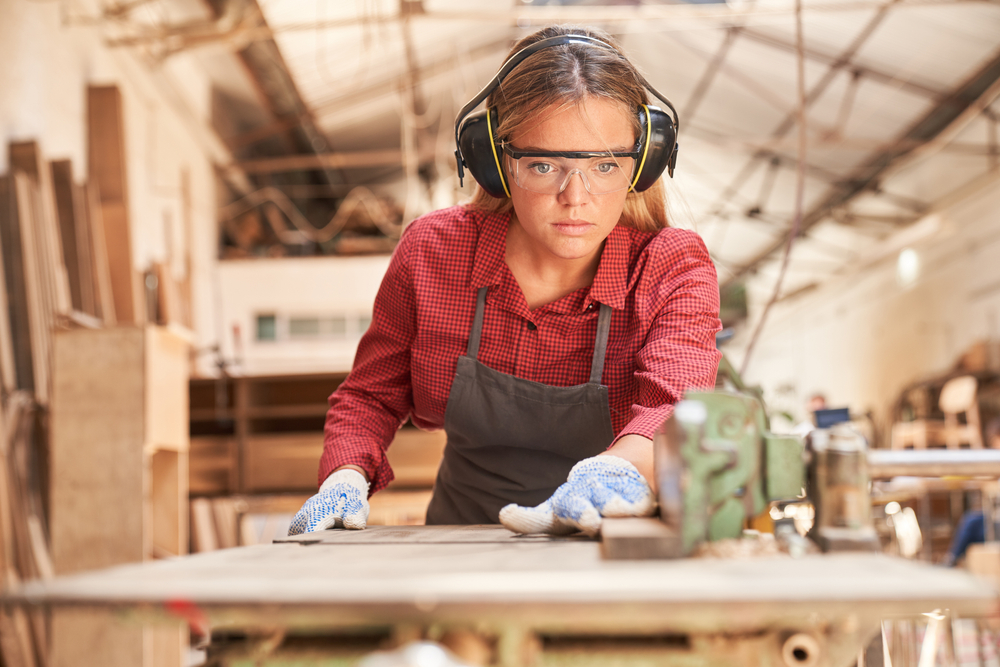
Whether you’re going to concerts, at work, or doing some yard work, hearing protection is essential in keeping your ears safe from hazardous noise levels. However, several factors can impact the effectiveness of your hearing protection, leaving you exposed to potential risks. In order to understand and successfully maximize the advantages of your ear protection, it’s essential to understand these issues.
Common reasons why hearing protection fails
Even when you observe best practices, unforeseen issues can happen. You wear your earmuffs diligently at work, wear earplugs at concerts, and stay away from noisy situations whenever you can. However, the effectiveness of your hearing protection can be decreased by certain variables. Fortunately, you can ensure the protection of your hearing by becoming aware of these common pitfalls and making educated adjustments.
1. Choosing the wrong hearing protection for the circumstance
The effectiveness of hearing protection can be decreased by selecting the wrong type for the given situation.
In general, hearing protection comes in two main categories:
- Earplugs: Small foam or rubber plugs that insert tightly into the ear canal.
- Earmuffs: Larger devices that cover the entire ear, resembling headphones.
There is an optimal type for each situation:
- Settings with a continual noise threshold, like a factory floor or the cabin of an airliner, are the ideal times to utilize earplugs.
- In settings like a construction site where noise is irregular and you might need to regularly remove your hearing protection, earmuffs are the better choice.
If you’re in a quiet setting and need to temporarily remove your hearing protection, earmuffs are easier to manage. However, earplugs, especially disposable ones, can be easily lost, leaving you unprotected when noise levels spike again. Selecting the correct hearing protection for your needs is the first step toward protecting your hearing effectively.
2. Personal anatomy effects fit and effectiveness
Everybody’s ears are unique, meaning that not all hearing protection devices will fit everyone equally well. An average sized ear is what standard earplugs and earmuffs are designed for, but a more personalized solution may be necessary for your ear’s anatomy.
- Larger ear structures: Bigger ears can make earmuffs uncomfortable, causing gaps in the seal that allow noise to penetrate.
- Smaller ear canals: The noise-blocking ability of standard-sized earplugs may not be effective if narrower ear canals impede the formation of a sufficient seal.
If your hearing protection doesn’t fit correctly, you could become frustrated and choose to quit using them altogether which can endanger your hearing. If you spend substantial time in noisy settings, consider investing in custom-molded earplugs or professionally fitted earmuffs. These personalized solutions provide maximum comfort and effectiveness, ensuring you stay protected in any situation.
3. Failing to maintain or replace hearing protection
In order to stay effective, hearing protection devices need to be properly maintained just like any other devices do. Wear and tear, incorrect cleaning, and neglecting replacement schedules can all compromise their ability to protect your ears.
The following are a few tips on how to maintain hearing protection:
- Clean Properly: Earplugs and earmuffs are exposed to earwax and other debris, which can accumulate over time. In order to safely and effectively clean your earplugs or earmuffs, consult the manufacturer-recommended cleaning guidelines.
- Replace Cushions: Over time, earmuff cushions can lose their pliability. In order to maintain a tight seal, replace the cushions when necessary.
- Inspect for Damage: Regularly inspect the elastic band on earmuffs. Their ability to efficiently block noise can be compromised if the elastic band is loose or stretched.
Ignoring these basic maintenance duties can leave your hearing protection less effective or even useless. Regular upkeep is crucial to extend their lifespan and ensure reliable performance.
The advantage of a hearing specialist
If you’re uncertain whether your hearing protection is working, schedule an assessment appointment with us. We can check your current devices, recommend alternatives, and even offer personalized solutions tailored to your particular requirements.
Keeping your hearing safe is a commitment that lasts a lifetime and it’s crucial that you do it with the right tools. You can protect and preserve your hearing for many years by managing these common challenges.